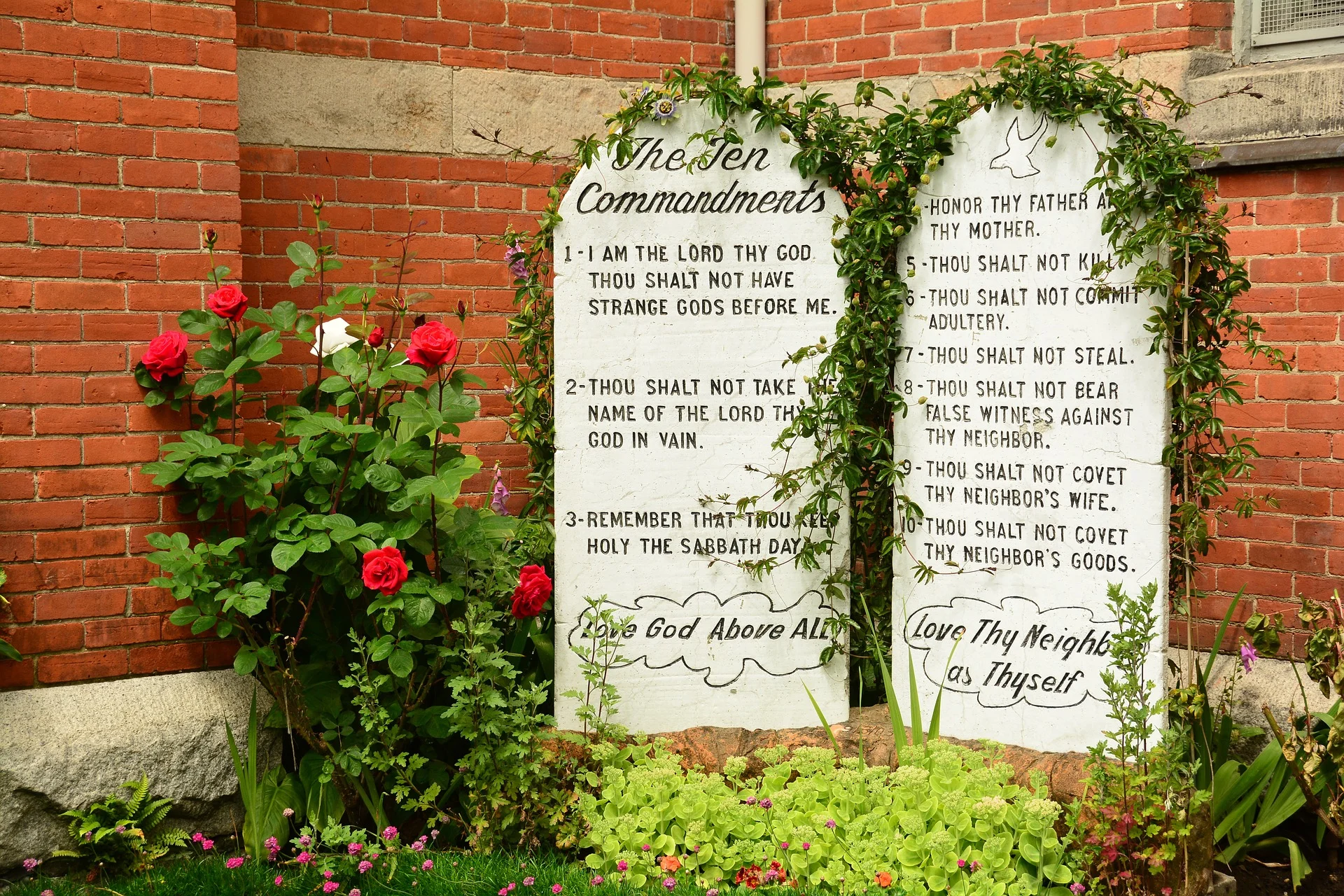Our Unseen Enemy - Part 7: Zoomorphism - The Dragon
This final post in Our Unseen Enemy series has been long in coming and I apologize. Life is just very busy and sometimes overwhelming, but then, isn’t that exactly like our enemy? He likes to distract us from the things that are really important.
Whether you believe in dragons as actual created beings or not, the imagery of a dragon has been around for a very long time. The Bible uses the word dragon according to the New American Standard translation 16 times. Three of these are in the Old Testament and 13 are in the New Testament, with all thirteen used in the book of Revelation. Why God chose to relay the image of the dragon to John on the Isle of Patmos when he received the vision of the revelation of God, we are not sure, except that the idea of a dragon has always been one that evokes the idea of strength, and power which is used for fiery destruction.
Being a writer and reader of fantasy, I have always liked the idea of dragons. Until shows like Merlin and movies like How to Train Your Dragon, dragons have typically had a nasty reputation. While I enjoyed the aforementioned shows, a dragon is not really a creature you want to cozy up with. They are scaly, stubborn and vengeful.
If we look at history, early dragons were serpent like in their form and it wasn’t until later that dragons acquired wings, armor and the ability to breath fire. The idea that there might have been something closer to the image of what we think of as a dragon, as being real comes from a few passages in the Old Testament, where a great beast, called the Leviathan, or sea monster is mentioned. Note in the following passage Leviathan is referred to both as a serpent and a dragon.
“On that day the Lord will punish Leviathan the fleeing serpent,
With His fierce and great and mighty sword,
Even Leviathan the twisted serpent;
And He will kill the dragon who lives in the sea.”
This next passage is the one that causes me to pause and think, that maybe, dragons were real. After all, why couldn’t a God who created the earth from nothing, and man from dust, make a dragon? Perhaps that serpent that came to Eve in the garden, was actually a dragon. He walked upright and was very beautiful. I am pretty sure a dragon would be a beautiful creature to behold.
““1 Can you drag out Leviathan with a fishhook,
And press down his tongue with a rope?
2 Can you put a rope in his nose,
And pierce his jaw with a hook?
3 Will he make many pleas to you,
Or will he speak to you gentle words?
4 Will he make a covenant with you?
Will you take him as a servant forever?
5 Will you play with him as with a bird,
And tie him down for your young girls?
6 Will the traders bargain for him?
Will they divide him among the merchants?
7 Can you fill his skin with harpoons,
Or his head with fishing spears?
8 Lay your hand on him.
Remember the battle; you will not do it again!
9 Behold, your expectation is false;
Will you be hurled down even at the sight of him?
10 No one is so reckless that he dares to stir him;
Who then is he who opposes Me?
11 Who has been first to give to Me, that I should repay him?
Whatever is under the entire heaven is Mine.
12 “I will not be silent about his limbs,
Or his mighty strength, or his graceful frame.
13 Who can strip off his outer covering?
Who can pierce his double armor?
14 Who can open the doors of his face?
Around his teeth there is terror.
15 His strong scales are his pride,
Locked as with a tight seal.
16 One is so close to another
That no air can come between them.
17 They are joined one to another;
They clasp each other and cannot be separated.
18 His sneezes flash forth light,
And his eyes are like the eye of dawn.
19 From his mouth go burning torches;
Sparks of fire leap forth.
20 From his nostrils smoke goes out
As from a boiling pot and burning reeds.
21 His breath sets coals aglow,
And a flame goes forth from his mouth.
22 In his neck dwells strength,
And dismay leaps before him.
23 The folds of his flesh are joined together,
Firm and immovable on him.
24 His heart is as firm as a stone,
And as firm as a lower millstone.
25 When he rises up, the mighty are afraid;
Because of the crashing they are bewildered.
26 The sword that reaches him cannot prevail,
Nor the spear, the dart, or the javelin.
27 He regards iron as straw,
Bronze as rotten wood.
28 The arrow cannot make him flee;
Slingstones are turned into stubble for him.
29 Clubs are regarded as stubble;
He laughs at the rattling of the javelin.
30 His underparts are like sharp pieces of pottery;
He spreads out like a threshing sledge on the mud.
31 He makes the depths boil like a pot;
He makes the sea like a jar of ointment.
32 Behind him he illuminates a pathway;
One would think the deep to be gray-haired.
33 Nothing on earth is like him,
One made without fear.
34 He looks on everything that is high;
He is king over all the sons of pride.””
Presupposing Leviathan is a type of sea dragon, there are several characteristics I want to draw out here and then we will move over to Revelation to look at what those scriptures say about that dragon.
1 - He is strong and armored.
2 - He has sharp teeth.
3 - He has scales (that is part of his armor).
4 - He breathes fire, or is able to produce fire, in the same way a snake produces poison.
5 - He is stiff necked (part of his strength).
6 - His heart is as hard as a stone.
7 - He is able to raise himself up and crash around. (This might mean he could walk on land, perhaps even on his hind legs. It could also mean he could fly. I think this is less likely the case because God mentions so many other parts of his anatomy, but not wings.)
8 - Weapons of that time: spears, javelins, swords, were really not sufficient to kill him.
9 - His underparts were somehow armored or at least sharp.
10 - There was nothing on earth like him.
11 - He did not fear.
We might question, why God would even make such a fantastical beast, but God is God. As a writer, I can understand that desire to create. God could have made a dragon, if that is what pleased Him, just as easily as He could have made a unicorn, a griffin or a three headed dog.
The book of Revelation, which is the last book of the Bible has long been held as a book about end times, or a book of prophecy of things yet to come. The imagery and things talked about have been debated and discussed over and over and there are various interpretations of just what exactly the images are referring to. My best girlfriend, Stacey Kowalewski, who is a believer, became interested in end times prophecies, when we were in junior high and we used to discuss what that would look like. It wasn’t until a few years ago, that Stacey decided to research and do her own in depth study of Revelation. I asked her for some feedback on these specific dragon related passages in Revelation and she provided very interesting insights.
Image by Ray Shrewsberry from Pixabay
The following is a document Stacey wrote up that specifically addresses the dragon as mentioned in Revelation 12. I know this is long, but she explains it so well. I am going to type BEGIN where the document starts and END, where it ends, as well as put quotation marks.
BEGIN (The first section is from a Bible Study that Stacey wrote. After it says “end of excerpt” is the rest of her commentary.)
“Revelation 12:4
4 And his tail *swept away a third of the stars of heaven, and threw them to the earth. And the dragon stood before the woman who was about to give birth, so that when she gave birth he might devour her child.
This passage shows the tail of the dragon sweeping away a third of the stars and throwing them to earth, which stands in contrast to the passage in verse 9, where the dragon and his angels are thrown down to earth with his angels by Michael and his angels. It also implies that the 1/3 of stars being cast down by the tail of the dragon happens before the dragon stands before the woman to devour her child. There are some similarities to the following passage from Daniel, and most commentaries believe that the verses in Daniel 8 were fulfilled by Antiochus IV Epiphanes who serves as a type of the Antichrist to come.
Many scholars say that the stars and host here are speaking of the Israelites themselves, in light of the twelve stars of the woman’s crown, this is possible.
Daniel 8:9-12
9 Out of one of them came forth a rather small horn which grew exceedingly great toward the south, toward the east, and toward the Beautiful Land.
10 It grew up to the host of heaven and caused some of the host and some of the stars to fall to the earth, and it trampled them down.
11 It even magnified itself to be equal with the Commander of the host; and it removed the regular sacrifice from Him, and the place of His sanctuary was thrown down.
12 And on account of transgression the host will be given over to the horn along with the regular sacrifice; and it will fling truth to the ground and perform its will and prosper.
The casting down of these stars by the dragon fits with the timing laid out in the scripture, under Antiochus (the tail of the dragon?) as Daniel shows, the Israelites were cast down. This happened roughly 170 years before the birth of Christ. Then the dragon stands before the woman about to give birth to devour her male child upon his delivery. This initially was Satan’s attempt to kill Jesus shortly after His birth, when Herod slew the male children (Matthew 2:13-23) , as well as His crucifixion, when the dragon thought he had gained victory in cutting off the life of the messiah, but he could not prevent His resurrection and His birth into the heavenly Kingdom. You see that it is the redemption of the child that Satan is trying to prevent. He could not stop the “Head” of the Child from being born into the heavenly kingdom, and He will not devour the “body” of the child, the body of Christ, also known as the Church from being born into the heavenly kingdom either. Just as Jesus was caught up, so will those who are part of the body of Christ be.
Revelation 12:5
5 And she gave birth to a son, a male child, who is to rule all the nations with a rod of iron; and her child was caught up to God and to His throne.
Following the rapture or catching up of the child we see the woman fleeing
Revelation 12:6
6 And the woman fled into the wilderness where she *had a place prepared by God, so that there she might be nourished for one thousand two hundred and sixty days.
Though the timeline seems to put the flight of the woman directly after the catching up of the child when moving on to the rest of the chapter we are given more clarity, that the woman flees “after” the dragon is cast down to earth (Revelation 12:13-17). So the timeline is as follows:
1. The tail of the dragon sweeps away 1/3 of the hosts (Israel under the rule of Antiochus IV Epiphanes).
2. Satan stands before the woman (Jerusalem/Israel) to devour her male child. Jesus the head plus the body of Christ. This encompasses the gap between Daniel’s 69th and 70th week.
3. Jesus (the head) is caught up to His throne, followed by His body- the church, who is also caught up (the rapture).
4. War breaks out in heaven between Michael and his angels and the Dragon and his angels.
5. The dragon and his angels lose and are cast down to earth.
6. The dragon persecutes the woman.
7. The woman flees to a place of safety prepared for her by God.
8. The dragon becomes enraged and makes war with the rest of the woman’s children.
Though parts of this passage had a past fulfillment under Antiochus, according to Jesus who lived after that happened, it will have a future one as well, when authority is given to the mouth of the beast or the “little horn” as Daniel calls him when the Antichrist is indwelled by the beast from the pit and commits the abomination of desolation as spoken of by the prophet Daniel (Matthew 24:15), he will then turn against the “host” or “saints” and trample them down.
_______________________________End of Excerpt________________________________________
The birth of the male child encompasses the church age; or the age of grace as we call it. Jesus the head is caught up to His throne and then one day His body will also be caught up to His throne. We know that in a normal childbirth the head is delivered first, followed by the body. The church age, is essentially the birthing process, hence the “birth pains”. It isn’t about the church being born onto the earth, but rather being delivered into heaven via the rapture/ resurrection.
What I would say this shows about the dragon, is that he is always standing before us, looking for an opportunity to devour us, which is consistent with:
1 Peter 5:8
8 Be of sober spirit, be on the alert. Your adversary, the devil, prowls about like a roaring lion, seeking someone to devour.
The dragon shows up in Chapter 13 standing on the seashore welcoming the rise of the “beast”, the chapter goes on to tell us that people will worship the dragon because he gives his authority, power and throne to the beast. This “beast” IMO is the kingdom of the antichrist. And the head that was “slain” and the mouth are the antichrist. The reason people are so enamored with the beast is because he basically comes back from the dead.
Revelation 13:3–4
3 And I saw one of his heads as if it had been slain, and his fatal wound was healed. And the whole earth was amazed and followed after the beast;
4 and they worshiped the dragon, because he gave his authority to the beast; and they worshiped the beast, saying, “Who is like the beast, and who is able to wage war with him?”
How can you wage war with someone who defies death?! Think about it, Jesus rose from the dead and forever changed the world as many followed in His ways. This imposter will try to do the same!
We see another picture of the beast in chapter 17, shown with the “woman” sitting upon him. This “picture” is an analogy that looks very similar to the description of the dragon in chapter 12. We see the scarlet beast defined in the passage as representing various elements of the end times Kingdom of the 70th week. It is the geopolitical representation of Satan’s kingdom on earth, that kingdom reflects the attributes of Satan the dragon. Just like Jesus came to establish a kingdom, Satan also sets out to establish a kingdom.
This tells me that the dragon is powerful and cunning and has a plan to deceive the nations into worshipping him as God. That has been his goal from the start; to be worshipped as god and for his protégé the antichrist also to be worshipped by the people of earth. The following passage in 2 Thessalonians speaks to this idea, the Thessalonians falsely believed that the Day of the Lord had come and IMO they thought they missed the rapture.
2 Thessalonians 2:3–12 (Parenthesis mine)
3 Let no one in any way deceive you, for it will not come unless the apostasy comes first, and the man of lawlessness is revealed, the son of destruction,
4 who opposes and exalts himself above every so-called god or object of worship, so that he takes his seat in the temple of God, displaying himself as being God. (The abomination of desolation)
5 Do you not remember that while I was still with you, I was telling you these things?
6 And you know what restrains him now, so that in his time he may be revealed.
7 For the mystery of lawlessness is already at work; only he who now restrains will do so until he is taken out of the way. (The rapture)
8 And then that lawless one will be revealed whom the Lord will slay with the breath of His mouth and bring to an end by the appearance of His coming;
9 that is, the one whose coming is in accord with the activity of Satan, with all power and signs and false wonders,
10 and with all the deception of wickedness for those who perish, because they did not receive the love of the truth so as to be saved.
11 And for this reason God will send upon them a deluding influence so that they might believe what is false,
12 in order that they all may be judged who did not believe the truth, but took pleasure in wickedness.
The “dragon” will be working fiercely during the 70th week to accomplish his goal while he is given the authority to act.
Isaiah 14:13–14
13 “But you said in your heart, ‘I will ascend to heaven; I will raise my throne above the stars of God, And I will sit on the mount of assembly In the recesses of the north.
14 ‘I will ascend above the heights of the clouds; I will make myself like the Most High.’
I wonder if Satan actually believes he can succeed, or if he just wants to take as many down with him to the pit as he can.
Obviously, the dragon in this passage is referencing Satan.”
END
As we are have learned over the last few months of studying our unseen enemy, we know that Satan, the accuser wants to bring us down. His focus is on the individual, the family, the church and even on our government. A dragon knows, just like the snake to go for the prey when they are weak, when they are at odds, fighting among themselves. He knows to tear down truth and muddy the waters is the best way to shred our belief system.
By using the analogy of the dragon to compare Satan to, we see that he is a beast with a heart of stone whose only goal is our destruction. While he knows he cannot destroy God, he will do the next best thing and destroy His creation and try with fierceness to scratch out the name of Jesus, not only from our country, but from our hearts.
Now, what are you going to do about it?
“3 For though we walk in the flesh, we do not wage battle according to the flesh,
4 for the weapons of our warfare are not of the flesh, but divinely powerful for the destruction of fortresses.
5 We are destroying arguments and all arrogance raised against the knowledge of God, and we are taking every thought captive to the obedience of Christ,”
Image by Mark Frost from Pixabay
“10 Finally, be strong in the Lord and in the strength of His might.
11 Put on the full armor of God, so that you will be able to stand firm against the schemes of the devil.
12 For our struggle is not against [f]flesh and blood, but against the rulers, against the powers, against the world forces of this darkness, against the spiritual forces of wickedness in the heavenly places.
13 Therefore, take up the full armor of God, so that you will be able to resist on the evil day, and having done everything, to stand firm.
14 Stand firm therefore, having belted your waist with truth, and having put on the breastplate of righteousness,
15 and having strapped on your feet the preparation of the gospel of peace;
16 in addition to all, taking up the shield of faith with which you will be able to extinguish all the flaming arrows of the evil one.
17 And take the helmet of salvation and the sword of the Spirit, which is the word of God.
18 With every prayer and request, pray at all times in the Spirit, and with this in view, be alert with all perseverance and every request for all the saints,”
Image by DarkmoonArt_de from Pixabay
“10 Then your light will break out like the dawn,
And your recovery will spring up quickly;
And your righteousness will go before you;
The glory of the Lord will be your rear guard.
9 Then you will call, and the Lord will answer;
You will cry for help, and He will say, ‘Here I am.’”
Image by Gerd Altmann from Pixabay
“15 Now when the attendant of the man of God had risen early and gone out, behold, an army with horses and chariots was circling the city. And his servant said to him, “This is hopeless, my master! What are we to do?”
16 And he said, “Do not be afraid, for those who are with us are greater than those who are with them.”
17 Then Elisha prayed and said, “Lord, please, open his eyes so that he may see.” And the Lord opened the servant’s eyes, and he saw; and behold, the mountain was full of horses and chariots of fire all around Elisha.”



































